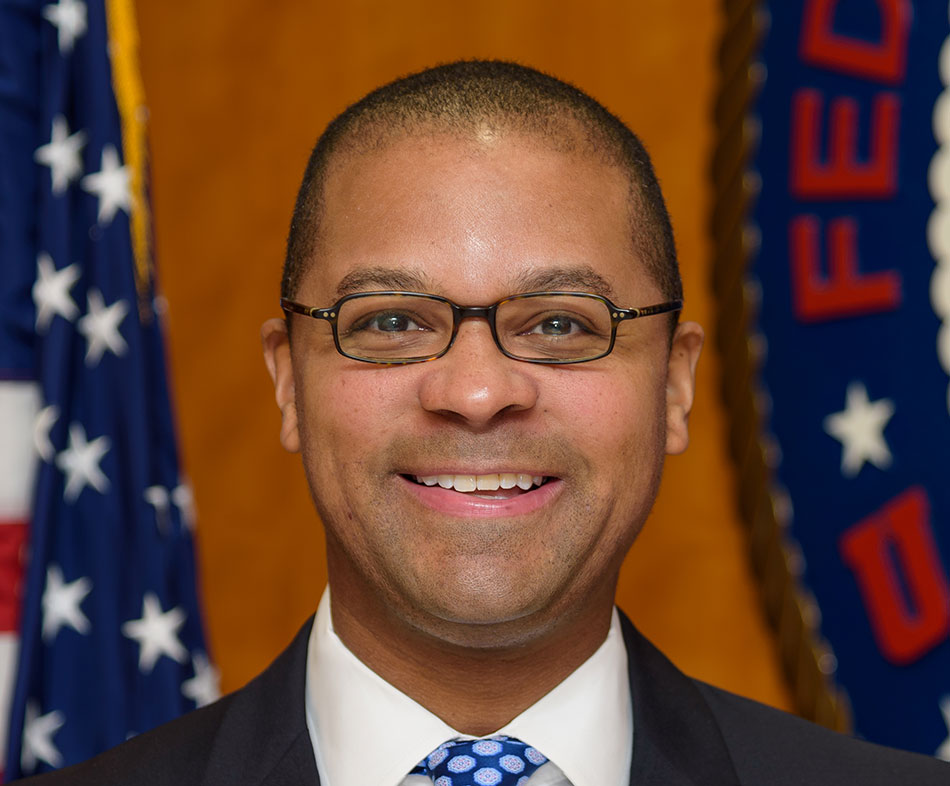FCC's Geoffrey Starks: Broadcasters Can 'Democratize' Streaming
Democratic commissioner suggests government could subsidize that effort

The smarter way to stay on top of broadcasting and cable industry. Sign up below
You are now subscribed
Your newsletter sign-up was successful
Federal Communications Commission member Geoffrey Starks said all Americans would benefit if broadcasters became a go-to streaming competitor to the Netflixes and Amazon Prime Videos of the world, using their new ATSC 3.0 advanced-TV transmission system, and perhaps the government should help subsidize that effort.
Starks, a Democrat, made that pitch in a speech to the University of Pennsylvania Carey Law School Center for Technology, Innovation & Competition.
Starks was talking up broadcasters' ATSC 3.0-powered improved picture quality, sound and newfound interactivity, something consumers "are otherwise used to having to pay for — either directly to a streaming service, or via their internet bill, at no additional cost." He also talked about the value add of the hyper-local content broadcasters would also be able to deliver along with more nontraditional broadcast content.
Also: Netflix's Reed Hastings: Linear TV Will Be 'Sleeping with the Fishes'
Starks put a big emphasis on the "no cost" in the broadcast "streaming" equation, saying "that kind of democratization of content benefits all Americans."
Starks's suggested government subsidy would help consumers pay for the new equipment they would need to receive the ATSC 3.0 signals free over the air, since the transmission standard is not backward-compatible and viewers would need to get a new TV to get the full benefit of the new tech.
But armed with that new tech, he said, viewers would be "in the driver's seat." Given that ATSC 3.0 is IP-based, he said, viewers get "all the benefits that internet protocol offers, but it still comes to your TV set for free, over-the-air, with the click of a button. You don’t need a high-speed internet connection — the gating item for streaming services.
The smarter way to stay on top of broadcasting and cable industry. Sign up below
"Having the TV broadcast industry use the same language as the internet means that the public airwaves can be another form of distribution for the content that you find on the internet, or on streaming media, in addition to what we think of as traditional broadcast content," he continued.
To drive that new streaming competition, Starks suggested Congress may need to step in with a "mandated digital transition equipment subsidy program," as it did with the government-subsizied digital TV converters when broadcasters transitioned from analog in 2009. Or perhaps the FCC could step in "as the regulator of television equipment?"
But with new freedom and opportunity comes responsibility, Starks signaled.
"One of the best things that streaming media has brought us is more diverse content, reflecting groups who don’t often see themselves on television," he said. "Representation in media isn't abstract or hypothetical — it directly impacts what stories are told, and who gets to tell them."
Rainbow-PUSH Coalition founder Jesse Jackson has long said the issue of who controls the media and gets to decide which stories are told is the civil rights issue of this century. Starks clearly agrees.
"Broadcasters should be thinking about the members of their communities whose stories aren’t being told, who might speak different languages or live in isolated areas, and how this benefit of additional, free content be used to serve them," he said.
All that was good news for broadcasters. What was not was Starks's assertion that broadcasters should have to continue to deliver a signal in the current ATSC 1.0 until there is "widespread" access to ATSC 3.0. Broadcasters have asked the FCC to proceed with a planned 2023 sunset to the requirement.
Cable operators definitely agree with Starks on that point. ▪️
Contributing editor John Eggerton has been an editor and/or writer on media regulation, legislation and policy for over four decades, including covering the FCC, FTC, Congress, the major media trade associations, and the federal courts. In addition to Multichannel News and Broadcasting + Cable, his work has appeared in Radio World, TV Technology, TV Fax, This Week in Consumer Electronics, Variety and the Encyclopedia Britannica.

